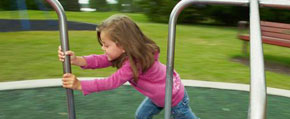We are pleased to announce an exciting new alliance between Active Living Research and GP RED to co-host and coordinate...
Microscale Audit of Pedestrian Streetscapes (MAPS)
The Microscale Audit of Pedestrian Streetscapes (MAPS) was developed to collect audit data on the pedestrian environment and walkability in neighborhoods.
“Microscale” factors of the built environment differ from macro-level design elements such as street connectivity and residential density and include details about streets, sidewalks, intersections, and design characteristics (e.g., road crossing features, presence of trees, bicycle lanes, curbs), as well as characteristics of the social environment (e.g., stray dogs, graffiti, trash). Microscale factors may also influence physical activity but have not been studied as extensively as macro-level factors. Studying microscale factors allows for a more fine-grained examination of the environmental features that enable or inhibit physical activity and may be more cost effectively and easily modified than macro characteristics. Microscale data are typically collected using in-person environmental audits.
There are three versions of the MAPS tool, each with varying degrees of complexity and intended users:
- MAPS-Full: 120-item audit survey, intended for researcher use
- MAPS-Abbreviated: 60-item audit survey, intended for researcher and advanced practitioner use
- MAPS-Mini: 15-item audit survey, intended for practitioner, advocacy, and community member use
The MAPS tool and protocols can be found here.
Information specifically on the MAPS-Mini can be found here.
Related Tools & Resources
STAY UP TO DATE
RECENTLY ADDED TOOLS & RESOURCES
MOVE! A BLOG ABOUT ACTIVE LIVING
The "Active Living Conference" aims to break down research and practice silos and...







